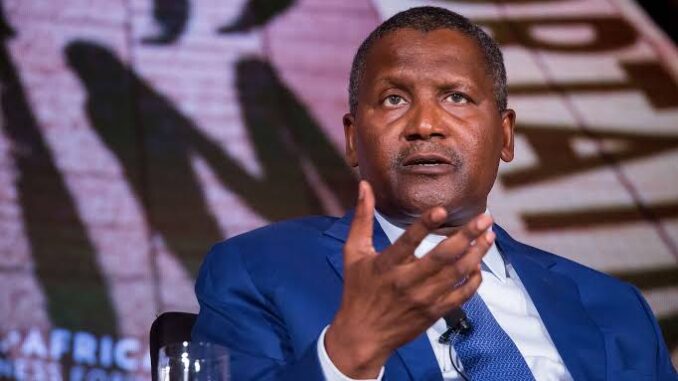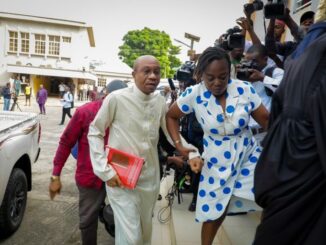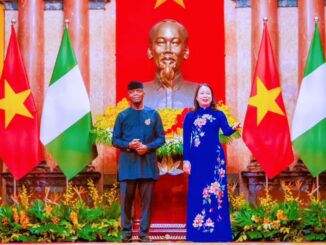
By Marvellous Nyang
September 24, 2024
The President and Chief Executive of Dangote Group, Alhaji Aliko Dangote, has made a compelling case for the Nigerian government to abolish fuel subsidies, asserting that they are financially unsustainable and detrimental to the country’s economic health.
In a recent interview with Bloomberg TV, Dangote discussed the significant challenges posed by the current subsidy regime, which he believes is costing the government approximately $10 billion annually.
Financial burden of fuel subsidies
Dangote pointed out that the financial implications of maintaining fuel subsidies are staggering.
The government’s expenditure on these subsidies has led to increased national debt and diverted funds away from critical sectors such as healthcare, education, and infrastructure development.
He emphasised that the current subsidy system inflates fuel prices domestically while creating a disparity with neighbouring countries, where gasoline prices are significantly higher.
This situation not only encourages smuggling but also undermines local businesses that cannot compete with subsidized prices.
Impact on the economy
In his analysis, Dangote highlighted that the artificial price control created by subsidies leads to inefficiencies in fuel distribution and consumption.
ALSO READ: Dangote denies selling petrol to NNPC at N898, says transactions made in dollars
He argued that by eliminating these subsidies, Nigeria could achieve a more transparent and market-driven pricing mechanism.
This change would not only stabilise the naira but also contribute to a healthier economy overall.
He noted that a clearer understanding of fuel consumption patterns would enable better planning and investment in energy infrastructure.
Local production and energy security
Dangote’s call for subsidy removal is closely tied to his ambitious $20 billion refinery project, which is set to produce 650,000 barrels of crude oil daily.
He believes that this facility will significantly reduce Nigeria’s dependence on imported fuels and enhance energy security.
By producing fuel locally, Nigeria can mitigate the risks associated with fluctuating global oil prices and supply chain disruptions.
The refinery is expected to create thousands of jobs and stimulate economic growth in surrounding communities.
Dangote expressed confidence that with local production capabilities in place, Nigeria can transition away from subsidies while ensuring affordable access to fuel for its citizens.
Historical context and future outlook
The discussion around fuel subsidies in Nigeria is not new; previous attempts to reform or eliminate them have often met with public resistance and protests.
In May 2023, a partial removal of subsidies led to widespread demonstrations as citizens faced rising fuel prices.
However, Dangote believes that the current economic climate necessitates a reevaluation of these policies.
He stressed that now is the opportune moment for the government to take decisive action toward subsidy removal, framing it as essential for long-term economic stability.
Aliko Dangote’s advocacy for ending fuel subsidies reflects a broader need for economic reform in Nigeria.
His insights underscore the importance of sustainable fiscal policies that prioritise long-term growth over short-term fixes.
As Nigeria grapples with its economic challenges, the debate surrounding fuel subsidies will likely remain a critical issue for policymakers and stakeholders alike.
By aligning subsidy removal with local production initiatives, Dangote envisions a more resilient economy capable of supporting its citizens while fostering growth and development.




